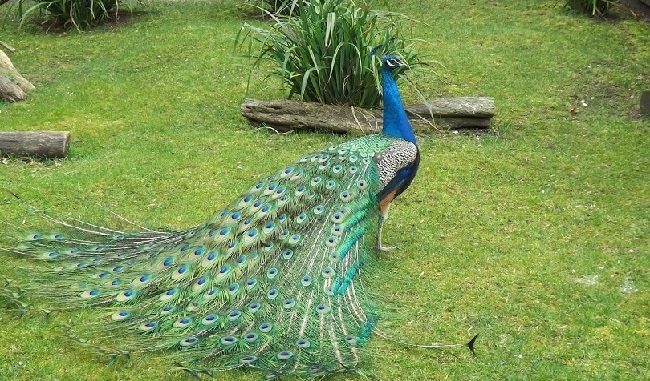Peacocks, with their stunning plumage and royal demeanor, can undoubtedly make a visually impressive addition to any household. However, the decision to keep such an exotic bird as a Pet should not be taken lightly.
Understanding the needs, responsibilities, and legalities associated with owning a Peacock is critical before welcoming one into your home. This guide provides an extensive look at everything you need to know about keeping a Peacock as a Pet.

What You Should Know Before Getting a Peacock as a Pet
You must know these things before getting a Peacock as a Pet:
Read Also:
Legal Considerations
Before even considering a Peacock as a Pet, it is crucial to check local laws and regulations. In some regions, keeping Peacocks as Pets might be illegal or require specific permits and licensing.
Space Requirements
Peacocks are large birds that require ample space. A small garden or backyard won’t suffice for these animals. They need a large enclosure to roam around, display their feathers, and engage in their natural behaviors.
Living with a Peacock: What to Expect?
Here are some expectations for living with a Peacock:
Noise Level
Peacocks are known for their loud calls, especially during the mating season. This noise can disturb neighbors and become a significant concern in residential areas.
Diet
Peacocks are omnivores, and their diet includes grains, fruits, insects, and small reptiles. Providing a balanced diet is essential for their health and well-being.
Lifespan
Peacocks can live up to 20 years or more in captivity, meaning a commitment to a Peacock is a long-term one.
Health Care and Maintenance for Your Pet Peacock
Peacocks require regular vet check-ups and vaccinations to keep them healthy. They also need a clean environment and a place to roost off the ground.
Benefits of Having a Peacock as a Pet
Despite the challenges, Peacocks can also be rewarding Pets. They are known for their friendly and curious nature. Their magnificent display of feathers is a sight to behold and can bring great pleasure to bird and nature enthusiasts alike.
The Peacock Breed: Indian Blue, Green, and Hybrid
Peacocks belong to the pheasant family and are native to Asia. There are three types of peafowl: the Indian Blue, Green, and various hybrids.
Each breed comes with its own unique characteristics and demands, so choosing the breed that suits your environment and lifestyle is vital.
Indian Blue Peacock
Indian Blue is the most common breed and is renowned for their magnificent blue and green plumage and regal bearing. This breed tends to be more adaptable to varying climates and can be a good choice for those living in more temperate regions.
Green Peacock
Green Peacocks, native to the rainforests of Southeast Asia, are slightly larger than their Indian Blue counterparts and boast green and bronze plumage. These Peacocks require a warmer, more humid environment that closely mimics their native tropical habitat.
Hybrids
Hybrid peafowls are a crossbreed between the Indian Blue and Green Peacock. They carry the traits of both parent breeds and can display a variety of plumage colors.
The Significance of Peacock in Culture and History
Peacocks have a long-standing role in many cultures and are symbols of beauty, pride, and immortality. In history, Peacocks were considered a sign of aristocracy, and keeping them was often a status symbol.
Read Also:
Conclusion
Keeping a Peacock as a Pet is a significant commitment that comes with unique challenges and responsibilities. However, with the right environment, care, and dedication, a Peacock can be a wonderful and rewarding Pet for those willing to meet their needs.
Dive into the intriguing world of owning a Peacock as a Pet. Discover the responsibilities, requirements, and rewards that come with this choice.
Whether you’re an experienced bird owner or considering your first exotic Pet, this guide provides the crucial information you need to make an informed decision.
Understanding the unique needs of these stunning birds can help you determine whether a Peacock might be the right Pet for your lifestyle.
























